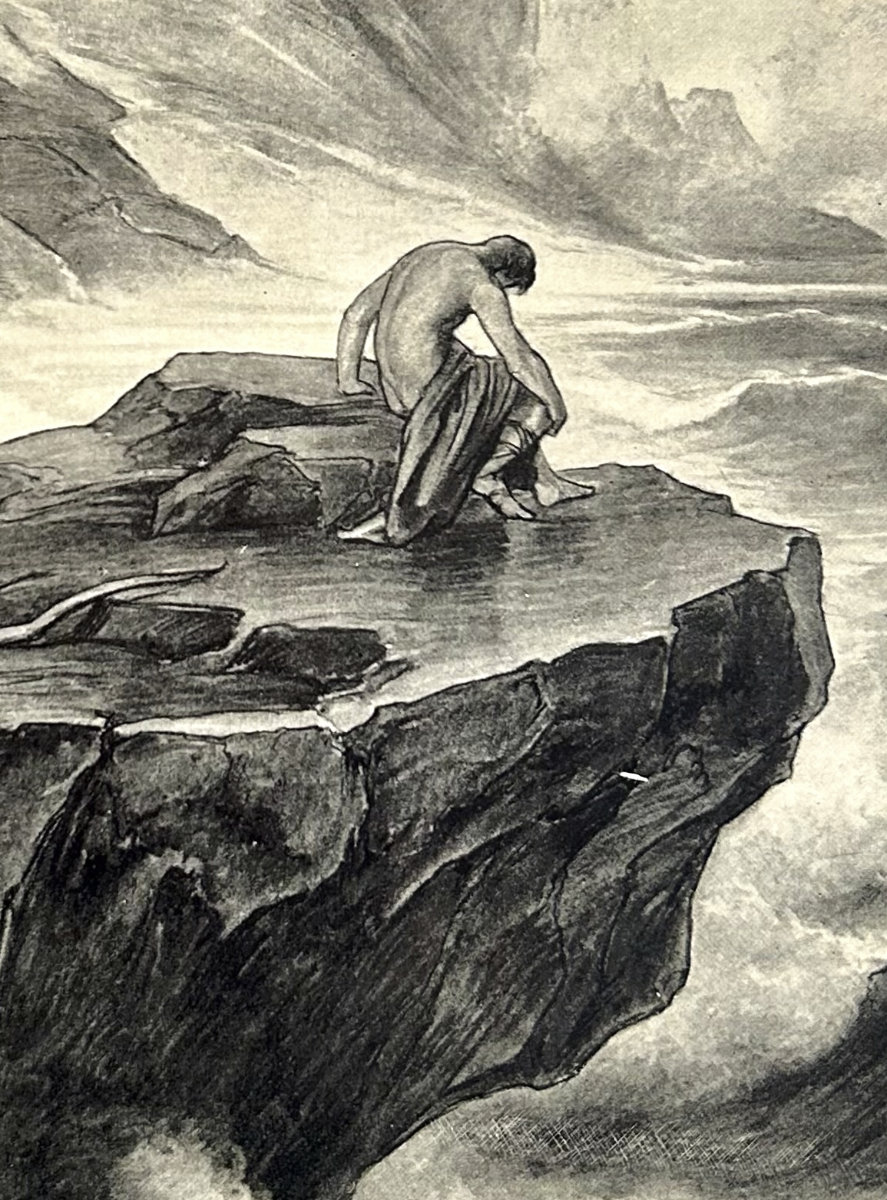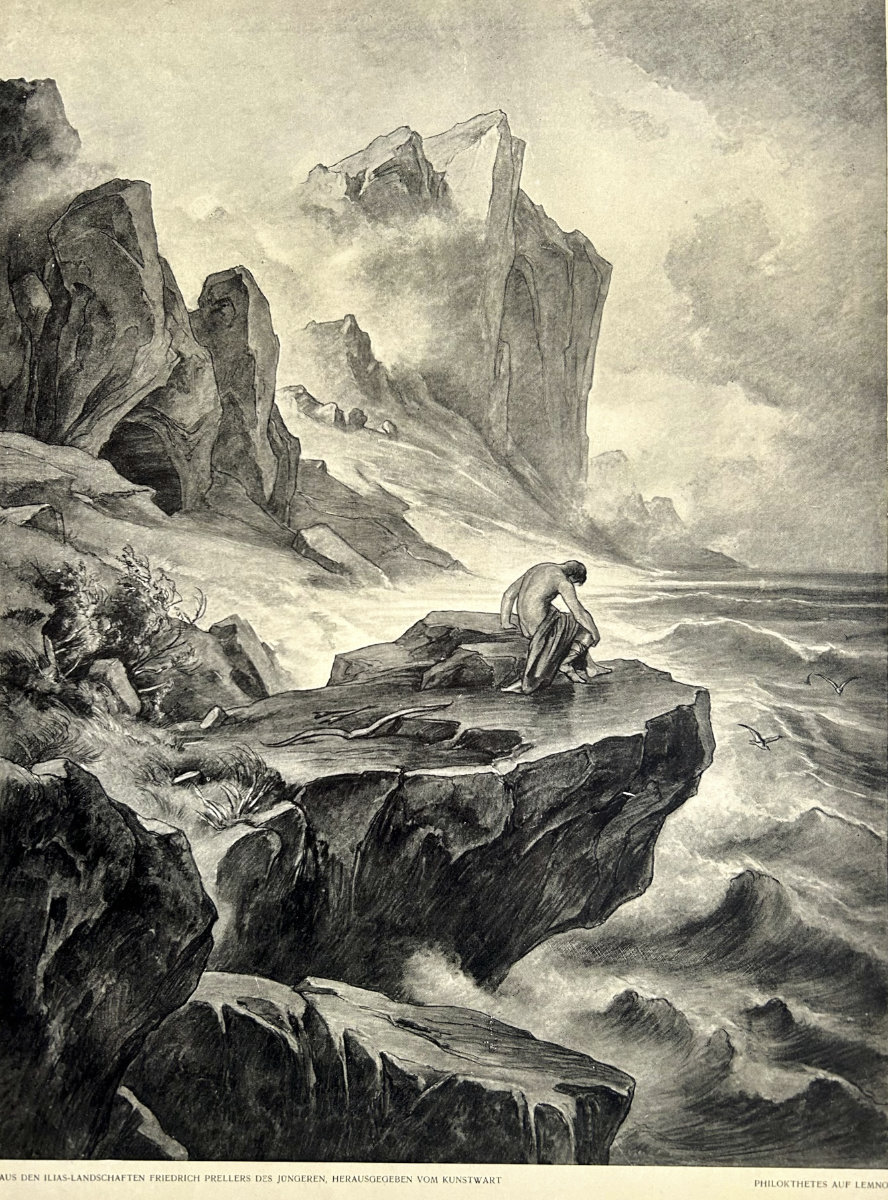Philoctetes, or Philocthetes, according to Greek mythology, was the son of Poeas, king of Meliboea in Thessaly, and Demonassa or Methone. He was a Greek hero, famed as an archer, and a participant in the Trojan War. Philoctetes was the subject of four different plays of ancient Greece, each written by one of the three major Greek tragedians. Of the four plays, Sophocles’ Philoctetes is the only one that has survived. Sophocles’ Philoctetes at Troy, Aeschylus’ Philoctetes and Euripides’ Philoctetes have all been lost, with the exception of some fragments. Philoctetes is also mentioned in Homer’s Iliad, Book 2, which describes his exile on the island of Lemnos, his being wounded by snake-bite, and his eventual recall by the Greeks. The recall of Philoctetes is told in the lost epic Little Iliad, where his retrieval was accomplished by Diomedes. Philoctetes killed three men at Troy.
| Alias Philoctetes |
| Real Names/Alt Names Philoctetes |
| Characteristics Sailor, Argonauts, Bronze Age, Greek |
| Creators/Key Contributors Apollonius Rhodius |
| First Appearance Greek mythology |
| First Publisher ○ |
| Appearance List Literature: Homer’s Odyssey (mentioned, c. 8th century BCE, English 1614), Homer’s Iliad (mentioned, c. 8th century BC), Hesiod’s Theogony (c. 700 BCE), Medea by Euripides (431 BC), poetry by Appolonius, Diodorus, Valerius, Apollodorus, Ptolemy, Pausanias, Hyginus, Tzetzes, Apollonius of Rhodes’ epic poem Argonautica (late 3rd century BC), The Argonautica by Gaius Valerius Flaccus (late 1st century AD), Argonautica Orphica, Dante’s Divine Comedy (briefly, 1308–1320), William Morris’ epic poem The Life and Death of Jason (1867). Film: Jason and the Argonauts (1963). |
| Sample Read The Argonautica [PG] |
| Description Philoctetes, or Philocthetes, according to Greek mythology, was the son of Poeas, king of Meliboea in Thessaly, and Demonassa or Methone. He was a Greek hero, famed as an archer, and a participant in the Trojan War. Philoctetes was the subject of four different plays of ancient Greece, each written by one of the three major Greek tragedians. Of the four plays, Sophocles’ Philoctetes is the only one that has survived. Sophocles’ Philoctetes at Troy, Aeschylus’ Philoctetes and Euripides’ Philoctetes have all been lost, with the exception of some fragments. Philoctetes is also mentioned in Homer’s Iliad, Book 2, which describes his exile on the island of Lemnos, his being wounded by snake-bite, and his eventual recall by the Greeks. The recall of Philoctetes is told in the lost epic Little Iliad, where his retrieval was accomplished by Diomedes. Philoctetes killed three men at Troy. |
| Source Philoctetes – Wikipedia |



